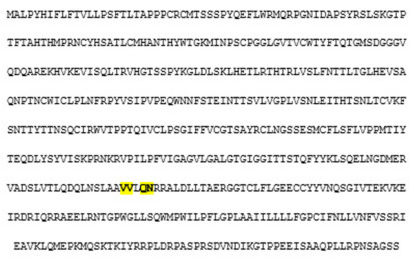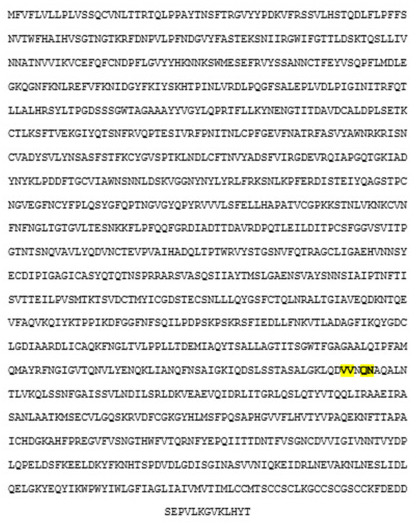
COVID-19, the vaccine, fertility and periods – your questions answered
In this article
What's the lowdown?
The COVID-19 vaccine does not effect fertility – phew!
Infection with COVID-19 may have an effect on periods, but this may also occur with severe illnesses and stress-related causes
The COVID-19 vaccine could also have a temporary effect on your menstrual cycle
More research is definitely needed around the effects of both the virus and the vaccine on periods – we believe women need to be informed and will be doing our own research with The Lowdown community
Read on to discover more about the facts and research currently being done on the COVID-19 vaccine and fertility, as well as the COVID-19 vaccine and periods … and to hear some of our user’s own experiences!
COVID-19 vaccine and fertility
Does the COVID-19 vaccine affect fertility?
The answer to this question from the experts is a resounding no.
The President of the Royal College of Obstetricians and Gynaecologists, Edward Morris, says “there’s absolutely no scientific evidence to suggest that any of the COVID-19 vaccines affects fertility, for men or women, or any plausible biological reason that it would”.
Most young women of childbearing age will have had 23 vaccinations by the age of 20 and there is no effect on fertility, so why should the COVID-19 vaccines be different?
Where did the rumour come from?
Early conspiracy theories circulated online suggested that the COVID-19 vaccine could disrupt the formation of the placenta and therefore affect fertility. A research group has addressed this rumour and its potential origins.
We know the COVID-19 vaccines target the “spike protein” found on the outside of the COVID-19 virus. By neutralising this spike protein, the virus is unable to enter our cells to replicate and cause further infection.
The online anti-vaxxer community claims there is an alleged similarity between the spike protein and a protein called syncytin-1 that embryos need to form a placenta. Their concerns are that this similarity causes the body to form an immune response against the placenta as well as the COVID-19 spike proteins.
The diagram below shows the amino-acid sequence (which is basically a map) of each protein, these have been taken from the original study paper itself. The similarity between them is highlighted in yellow.
1. Human Syncytin-1 Protein

2. COVID-19 Spike Protein

Kloc M, et al. Exaptation of Retroviral Syncytin for Development of Syncytialized Placenta, Its Limited Homology to the SARS-CoV-2 Spike Protein and Arguments against Disturbing Narrative in the Context of COVID-19 Vaccination. Biology (Basel). 2021;10(3):238.
As you can see……there really isn’t much similarity. It is likely that multiple proteins in the body would have this small identical sequence to the COVID-19 spike protein and there is no evidence of an immune response against other proteins. And now there is actual science completely disproving this theory.
What research has been conducted to date?
Research groups have started where they usually do, in rats.
In one lab study, female rats were injected with the full adult dose of the Pfizer COVID-19 vaccine three weeks before being introduced to male rats. 95% of the rats fell pregnant after, quite amazingly, three days.
This is encouraging as animal and rat studies are considered the best tools available to predict potential problems in humans. It is difficult to design clinical trials looking at fertility in humans.
It is rather unethical to force human women to get pregnant after their vaccinations. So instead, we have to look at data in real time as it happens, which thankfully NHS England have provided us with.
Dr Vicki Male, reproductive immunologist at Imperial College London reported to NHS England that “In the vaccine clinical trials, participants were asked to use reliable contraception, but nevertheless, 57 of them became pregnant by accident. These pregnancies occurred equally in the vaccinated, and the unvaccinated groups, telling us that being vaccinated doesn’t reduce your chances of getting pregnant”. These women were all meant to be using reliable contraception but obviously hadn’t found The Lowdown yet…
Dr Male adds “In the US, at the end of March 2020, 4804 post-vaccination pregnancies have been reported to the CDC although this is going to be an underestimate of the global total, because this is only Americans”.
In men, studies have looked at the quality of sperm before and after vaccination with the Pfizer vaccine, and vaccination makes no difference to the quality of your sperm. However, infection with COVID-19 can have a negative effect on this.
Finally, the COVID-19 vaccines are not known to cause any harm to, or affect the success of fertility treatments. Equal numbers of pregnancies have been counted in IVF cycles in both vaccinated and unvaccinated couples.
Not only is there no scientific evidence linking the COVID-19 vaccines with fertility problems, the research so far is very reassuring and provides evidence to the contrary.
What do I do if I have concerns about the vaccine and fertility?
We advise you to avoid reading stories on social media that don’t have scientific references to support their claims.
We would suggest searching for information from reliable sources including the Royal College of Obstetrics and Gynaecologists, the Royal College of Midwives, or the Centre for Disease Control and Prevention in the USA.
If you feel you need to speak to a healthcare professional about fertility concerns, speak to your GP or one of The Lowdown women’s health team. Remember that most couples don’t get pregnant in the first month of trying to conceive, but 85% of couples do within a year.
COVID-19 infection and periods
Does having COVID impact your periods?
Many women have been reporting changes to their periods following infection with COVID-19. This is of course only women who knew they had COVID-19, as one third of women still have absolutely no symptoms despite being infected and may therefore not get tested.
One Lowdown user reports:
“Covid has completely changed my period. From how long it lasts, to the intensity of my cramps (mine have lessened thankfully), to the colour. Some months I’m 3-5 days early, others I’m 3-5 days late, occasionally on time. I thought as I continued to improve in my other long-hauler symptoms, this would balance out as well, but it has not. It’s almost as if I’m starting my period for the first time all over again.”
Menstrual irregularities in 237 women (of child bearing age) who had confirmed COVID-19 have been investigated by scientists in China. 20% of these women reported lighter periods, while 5% experienced heavier periods. One fifth of women experienced longer cycles, and this occurred in women with both mild or severe COVID-19 infection.
On follow up, 99% of the women’s menstrual changes had returned to normal within 2 months, so any changes are likely to be short lived. One 44 year old woman didn’t have a period for 4 months after COVID-19, but we don’t yet know whether age will have an impact on these changes. The length between periods also changes in the perimenopause (the time around and leading up to the menopause).
It is really important to remember that changes in the menstrual cycle are common after any severe illness and are related to the stress the body is under. However, clearly more research is needed to understand the true effects of COVID-19 on our periods.
COVID-19 vaccine and periods
Does having the COVID-19 vaccine impact your periods?
No previous vaccination has had as much media interest as the COVID-19 vaccine. Side effects and adverse reactions are identified by patients and healthcare professionals who report them via the MHRA’s Yellow Card scheme.
Due to the intense media scrutiny of the worldwide COVID-19 vaccination programme, more women may be anticipating and therefore noticing menstrual irregularities, which are normally very common. Menstrual irregularities have also been reported after other widely used vaccinations including HPV (human papillomavirus) and flu.
Some women have reported heavier and more frequent bleeding after the vaccination. This seems to be more common with the AstraZeneca vaccine than with the Pfizer vaccine. There are plausible reasons why there may be a link.
A potential hypothesis for this is that an autoimmune reaction against platelets (now listed as a common side effect of the COVID-19 AstraZeneca vaccination) causes heavier bleeding. This is because platelets are needed to clot our blood, and lower platelets could mean heavier bleeding.
Dr Pat O’Brien, Vice President at the Royal College of Obstetricians and Gynaecologists, said:
“It’s important to remember these side effects are mild and should not deter women from having the vaccine when they are called. Many women will experience a temporary change in their periods from time to time during their lives. And right now, many women in their 30s are having the COVID vaccine. So it seems inevitable that in some women these two events will coincide by chance. If, however, these changes persist, or you have any new vaginal bleeding after the menopause, you should see your doctor.
We also want to stress that these perceived changes in menstrual cycle after having the COVID-19 vaccine should not be confused with an impact on fertility and the ability to have children. There is no evidence to suggest that COVID-19 vaccines will affect fertility.”
So… what next?
We believe the lack of information on this topic highlights the gender bias in clinical research trials towards men over women. We’d like to see menstrual irregularities investigated as part of clinical trials so women can be made aware of potential side effects, like changes to bleeding patterns, so they can be prepared rather than anxious or worried.
If we have learnt anything from The Lowdown community it is that women and their periods should not be ignored! Women would much rather be well-informed and empowered to anticipate and manage the side effects of life-saving vaccines, just like we are doing with contraceptive methods here at The Lowdown.
Our medical review process
This article has been medically reviewed for factual and up to date information by a Lowdown doctor.


